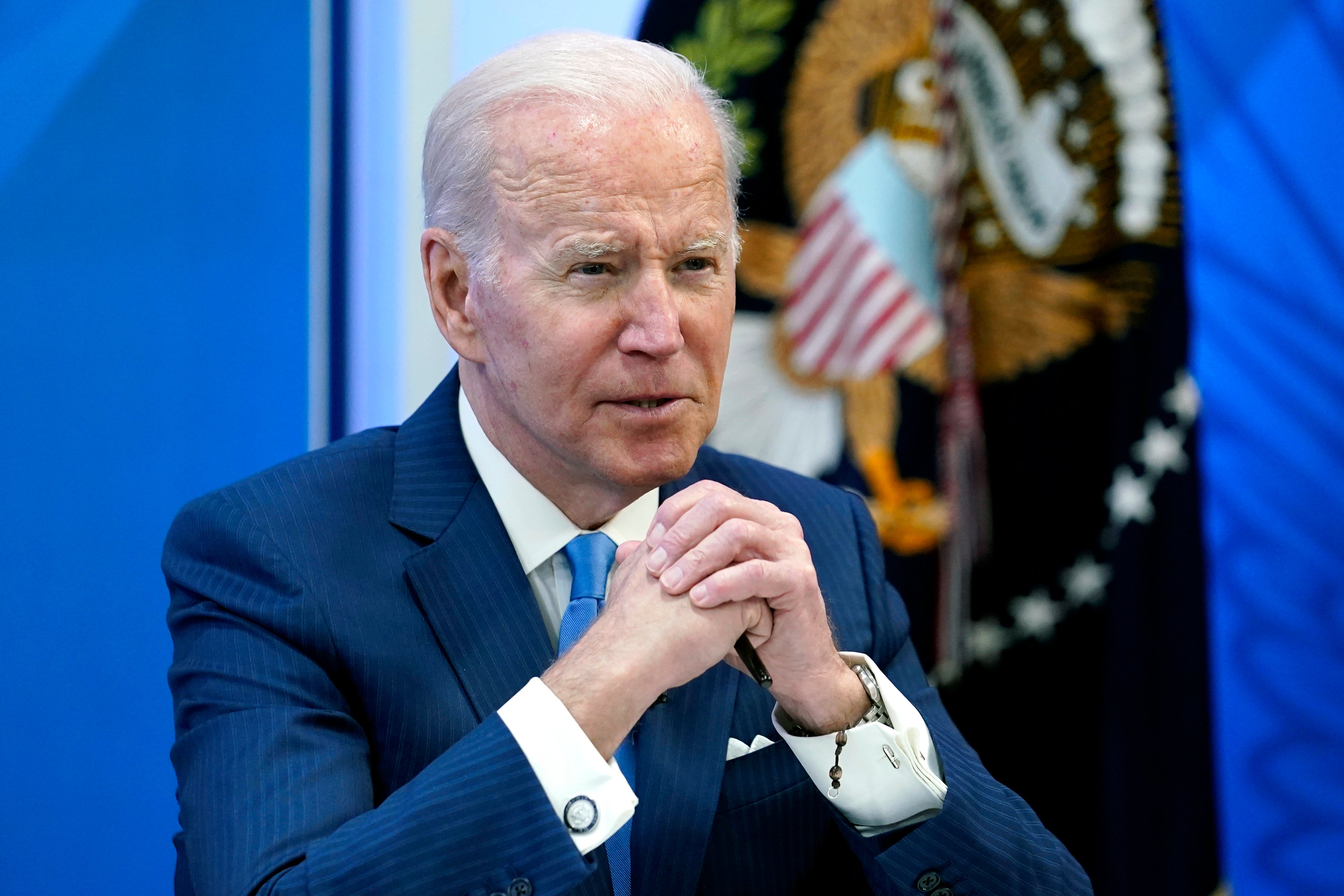Majority of Americans back sanctions on Russia and aid to Ukraine, new poll finds
Most Americans responding in the Post-ABC poll said they’d oppose direct military action, with just 21 percent saying they think the US should commit boots on the ground
As the Russian invasion of Ukraine extends into yet another month, a majority of Americans say they remain steadfast in their support of the Biden administration’s policies to aid the invaded country, a Washington Post-ABC poll recently found.
Overall, 73 pe rcent of the poll’s respondents said they believe the US is either doing the right amount or too little to support Ukraine.
The poll, conducted by phone via landline and cell phone, sampled 1,004 adults nationally in both English and in Spanish. The results have a sampling error of 3.5 percentage points.
Humanitarian aid and further economic sanctions were two areas where respondents indicated an interest in the US stepping up what they’ve already committed. The poll, conducted from 24 to 28 April, would’ve finished polling respondents on the same day that US President Joe Biden asked Congress to support a $33bn package of military, economic and humanitarian assistance for the embattled country.
If approved, the package will double the level of assistance Washington has so far committed to the under-siege Ukraine.
Within the package, $20bn would be allocated for military aid, with everything from heavy artillery and cyber warfare tools falling under that spending umbrella definition. While $8.5bn would go towards economic support for Kyiv and $3bn for humanitarian relief.
At the time of polling, majority of respondents answers seemed to align with the US president’s $33bn aid request to Congress last week, with 76 per cent of respondents indicating they’d like the US to provide more humanitarian aid than they had so far and 67 per cent saying they’d like to see their country increase economic sanctions beyond what’s already been announced.
Despite most respondents saying they’d broadly support more sanctions against the invading country, it didn’t come without concerns being flagged for the cost-of-living crisis that’s only intensified as the war has driven up the price of gas, both at home and abroad.
In the US, the national average for gas prices the day after Russia invaded Ukraine was $3.57 a gallon and by the end of April, that price had jumped to over $4 a gallon, according to Statista.
About two-thirds said they were either very or somewhat worried about sanctions further contributing to higher food and gas prices domestically, but even among those who said they were concerned, 64 per cent said they’d still support sanctions.
The results similarly echoed the Biden administration’s policies on the eastern European war when it came to military involvement, as majority of respondents said they’d oppose the US taking any direct action against the invading army, a policy that the president has been adamant about being off the table.
“Despite the disturbing rhetoric coming out of the Kremlin, the facts are plain for everybody to see. We’re not attacking Russia. We’re helping Ukraine defend itself against Russian aggression,” Biden said last week when requesting the aid from Congress for Ukraine, before adding that the cost of the package was “a small price to pay to punish Russia and aggression, to lessen the risk of future conflicts”.
Chief concerns among those polled had to do with the war spilling over into other countries, including their own. Eight out of 10 respondents said they were very or somewhat concerned about the US military becoming directly involved in the war, while the same amount said they were worried about it expanding to another country and were concerned that Russia could use a nuclear weapon.

A majority said they would oppose the US becoming directly involved, 72 per cent, while among those who said they believe the US is doing too little to support the warring country, only 57 per cent supported their country’s military getting involved.
The idea of the US getting entangled in another war on foreign soil is a topic that remains tender among both political parties, as more than eight of 10 Republicans and Democrats cited it as either somewhat or very troubling.
Nuclear war becoming an unintended consequence of the ongoing war was viewed by more Democrats as being concerning (86 per cent) compared to Republicans (72 per cent).
The overall assessment of Biden’s handling of Ukraine and Russia, however, fell more along party lines with 73 per cent of Democrats approving, 76 per cent of Republicans disapproving and 41 per cent of Independents approving of his performance.
When the group was sliced into who they’d voted for in the previous presidential election, they remained fairly consistent in continuing to support the Biden administration’s policies for increasing humanitarian and military support.
Among voters who ticked Biden on the ballot in the 2020 election, 64 per cent supported more military aid for Ukraine while 52 per cent of those who chose former US President Donald Trump for re-election said they’d support more military spending.
Humanitarian aid seemed to be a more common cause between the two political groups, as 83 per cent of Biden voters said they’d back more spending while 67 per cent of Trump voters said the same.
Just days before the Biden administration made the $33bn spending request to Congress, Russia’s Vladimir Putin threatened to send a “lightning fast” response to any western power who crossed the line from aiding direct military intervention.
“We have all the weapons we need for this.”
Join our commenting forum
Join thought-provoking conversations, follow other Independent readers and see their replies
Comments


Bookmark popover
Removed from bookmarks